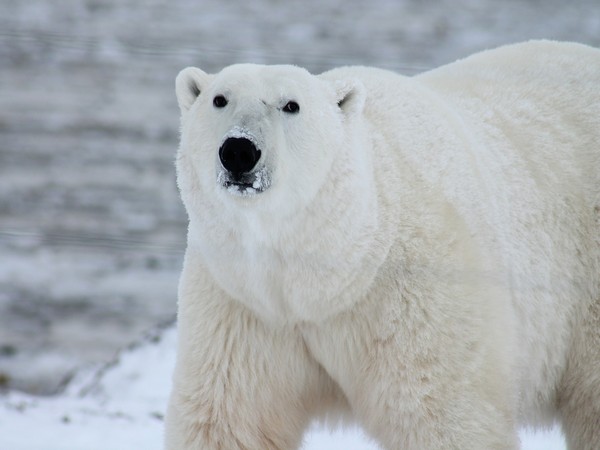Science News Roundup: Isolated Greenland polar bear population adapts to climate change; South Korea's Innospace to launch a rocket from Brazil in December -official and more
In a paper published in Nature Communications this week, the scientists said they had analysed remnants of solidified lava retrieved by an uncrewed Chinese mission from the plain known as the "Ocean of Storms" and found evidence of water in the form of hydroxyl encased in a crystalline mineral known as apatite.

Following is a summary of current science news briefs.
Isolated Greenland polar bear population adapts to climate change
An isolated population of polar bears in Greenland has made a clever adaptation to the decline in the sea ice they depend upon as a platform for hunting seals, offering a ray of hope for this species in at least some locales in the warming Arctic. This population of several hundred bears, inhabiting part of Greenland's southeast coast on the Denmark Strait, has survived with only abbreviated access to ice formed from frozen seawater by hunting instead of chunks of freshwater ice breaking off from the huge Greenland Ice Sheet, researchers said on Thursday.
South Korea's Innospace to launch a rocket from Brazil in December -official
South Korean aerospace and defense company Innospace will be the first private business to send up a rocket from the Alcantara launch center in northern Brazil in December, Brazilian Space Agency President Carlos Moura told Reuters on Friday. Innospace, which plans to make low-cost small satellite launches more accessible from multiple locations around the globe, is still developing its rocket and will test it with an experimental launch from Alcantara, Moura said in an interview.
China finds signs of water in the moon's 'Ocean of Storms'
Chinese scientists have found signs of water in samples retrieved by China from a lava plain on the moon, bringing them closer to understanding its origin there - a crucial question for future lunar exploration. In a paper published in Nature Communications this week, the scientists said they had analyzed remnants of solidified lava retrieved by an uncrewed Chinese mission from the plain known as the "Ocean of Storms" and found evidence of water in the form of hydroxyl encased in a crystalline mineral known as apatite.
- READ MORE ON:
- South Korean
- Greenland
- moon
- Nature Communications
- South Korea's
- Chinese
- Moura
- China
- Arctic
- Brazil
ALSO READ
Chinese tourists return to Kushinagar after 5 years, officials say tourism earnings set to rise
India imposes anti-dumping duty on 2 Chinese products
Aurobindo Pharma Strengthens Stake in Chinese Joint Venture
U.S. Blocks Chinese Drone Imports Over Security Concerns
U.S. to Impose Tariffs on Chinese Semiconductors










